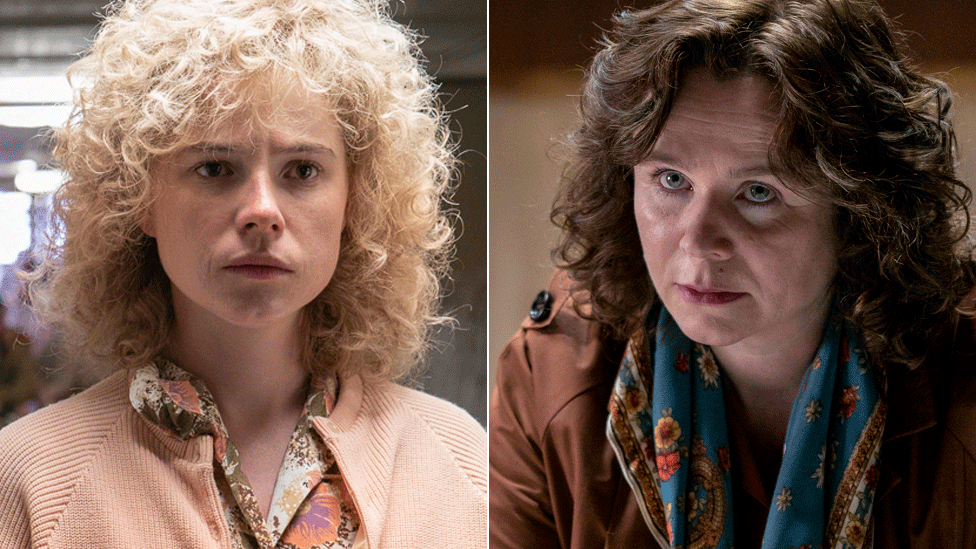Chernobyl selfies lead to warning from show's writer
- Published
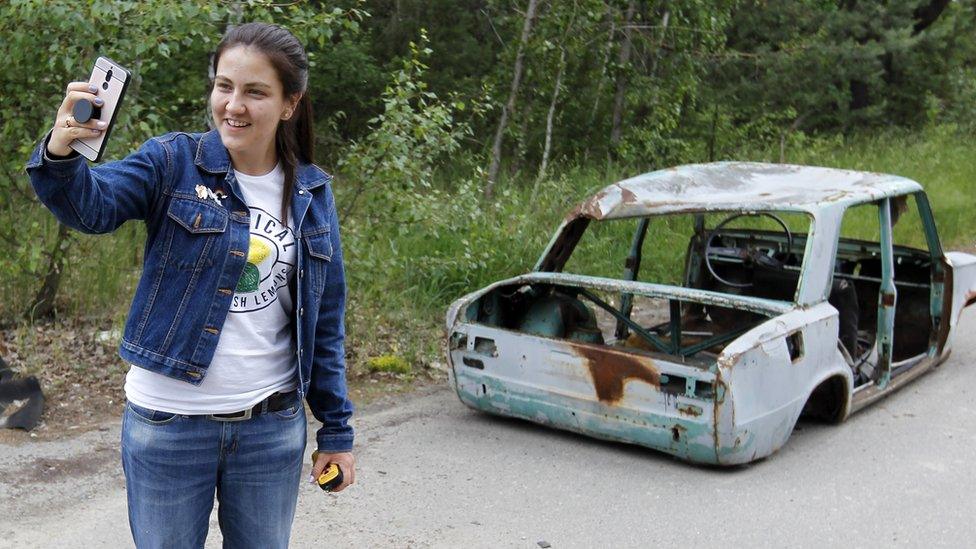
File photo: a visitor to the Chernobyl exclusion zone in the abandoned city of Pripyat this month poses for a selfie
Tourists visiting Chernobyl must be respectful, the creator of the HBO show about the nuclear disaster there says.
Some people visiting the site in Ukraine, where the world's worst nuclear accident happened in 1986, have been taking pictures smiling at the abandoned power plant - one person posted a semi-naked picture.
Craig Mazin said it's "wonderful" that a "wave" of people have been visiting.
But he's asked people to remember "that a terrible tragedy occurred there".
Estimates of the number of people affected vary hugely - the Chernobyl Forum says fewer than 50 died following exposure to radiation, but there could eventually be up to 9,000 deaths linked to the disaster.
"Comport yourselves with respect for all who suffered and sacrificed," Craig wrote on Twitter.
Allow Instagram content?
This article contains content provided by Instagram. We ask for your permission before anything is loaded, as they may be using cookies and other technologies. You may want to read Meta’s Instagram cookie policy, external and privacy policy, external before accepting. To view this content choose ‘accept and continue’.

A number of companies run tours to the 30km exclusion zone around Chernobyl, and Pripyat - the abandoned city that was built for Chernobyl's workers and families.
It had a population of 60,000 before the disaster but has been largely deserted ever since - although an estimated 60,000 tourists visited last year.
The exclusion zone spreads from Ukraine and into Belarus and covers an area more than twice the size of London.
Following the popular Sky Atlantic show there has reportedly, external been an increase in tourism to the zone. Its landmarks now feature in the background of pictures on Instagram.
Allow X content?
This article contains content provided by X. We ask for your permission before anything is loaded, as they may be using cookies and other technologies. You may want to read X’s cookie policy, external and privacy policy, external before accepting. To view this content choose ‘accept and continue’.

As we've said, the number of people who died as a result of exposure to radiation is disputed.
A 2005 report from the Chernobyl Forum suggested that fewer than 50 people died as a result of exposure to radiation - but it also estimated that up to 9,000 people could eventually die. Greenpeace puts the figure as high as 93,000.
What's not disputed is that around 5,000 cases of thyroid cancer - most of which were treated and cured - were caused by the contamination.
And that's what Chernobyl's writer wants people to remember.
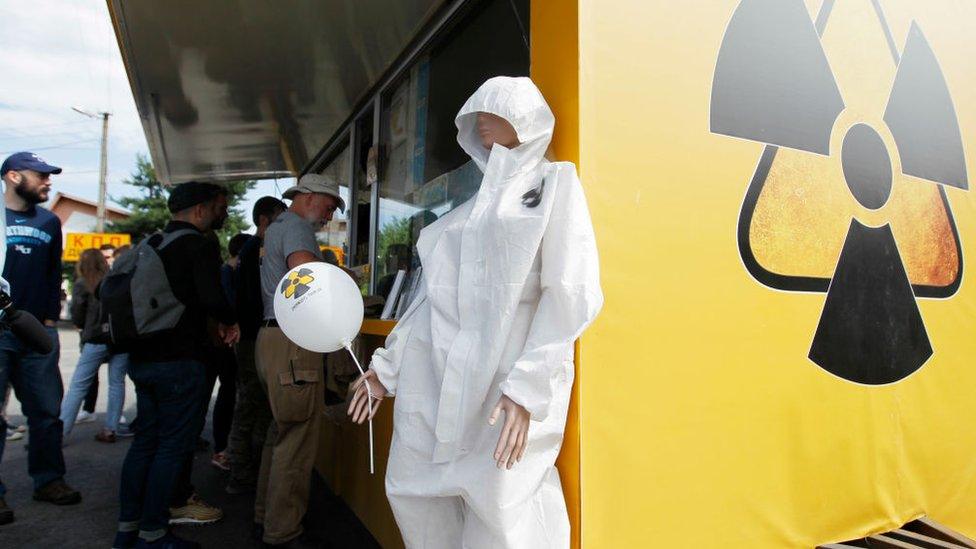
Souvenir stops are included in some Chernobyl tours
It's not the first time people have been asked to stop taking questionable selfies at historical sites.
In 2014 an American teenager's selfie at the Auschwitz Concentration Camp went viral for all the wrong reasons.
It wasn't the only selfie to be taken at the camp, where 1.1m people were killed during the Holocaust, or at the Berlin Holocaust memorial.
A website that Photoshopped graphic images from the Holocaust into the selfies was set up in response.
But with the Auschwitz Museum still feeling the need to call people out in 2019, it seems like something that's still happening.
Allow X content?
This article contains content provided by X. We ask for your permission before anything is loaded, as they may be using cookies and other technologies. You may want to read X’s cookie policy, external and privacy policy, external before accepting. To view this content choose ‘accept and continue’.



Follow Newsbeat on Instagram, external, Facebook, external, Twitter, external and YouTube, external.
Listen to Newsbeat live at 12:45 and 17:45 weekdays - or listen back here.
- Published12 June 2019
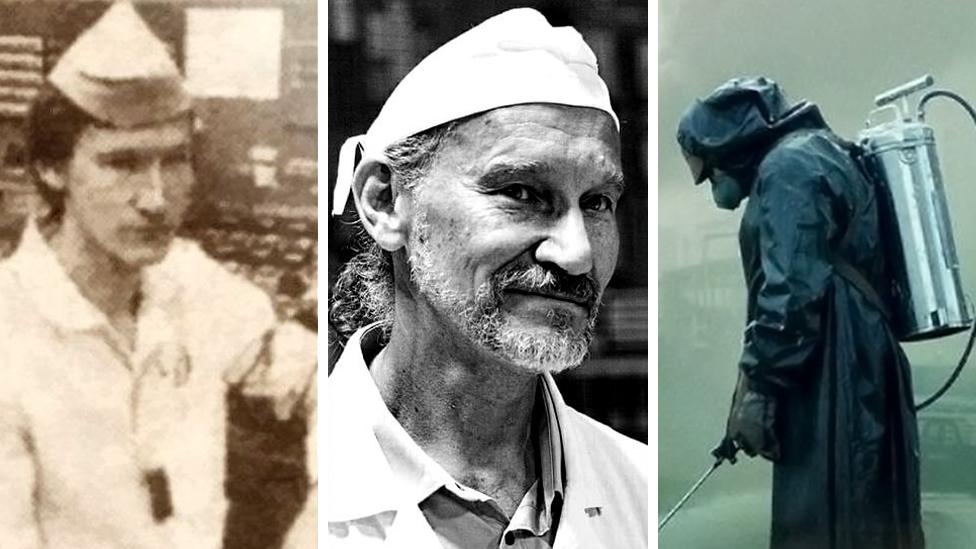
- Published14 February 2019
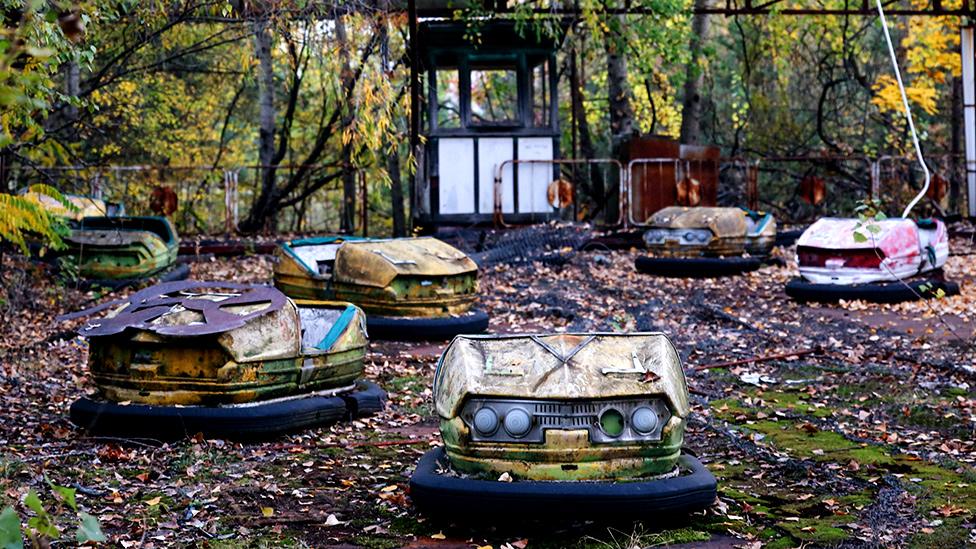
- Published6 May 2019
